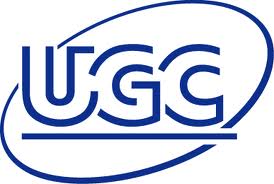 The reduced number of Indian students this year has led to concerns in some British universities over the financial viability of courses and departments particularly in the subjects of Science, Technology, Engineering and Mathematics (STEM).
The reduced number of Indian students this year has led to concerns in some British universities over the financial viability of courses and departments particularly in the subjects of Science, Technology, Engineering and Mathematics (STEM).
As universities report a drop of between 20 and 30% of Indian students in the forthcoming academic year starting later this month, the drop has caused much concern over the future of STEM courses that have been popular among postgraduate Indian students.
In oral evidence presented to the Business, Innovation and Skills Committee of parliament, senior figures in higher education and industry noted the concern among vice-chancellors about the impact of less Indian students on the financial viability of STEM courses and departments.
The committee, which published its report on ‘Overseas Students and Net Migration’ last week, recommended that Indian and other non-EU students should be removed from overall immigration figures since most of them return home after their courses.
The recommendation, however, was rejected by the government keen to cut immigration from outside the EU.
Nicola Dandridge, chief executive of Universities UK, which represents all universities and higher education institutions, told the committee that vice-chancellors were “particularly concerned” about the impact of less Indian students on STEM subjects.
She said: “I think it is too early to draw apocalyptic conclusions about the closures of departments, but the trends are not good.
It is particularly apparent now, because of the reduction of Indian students – students coming from the Indian subcontinent to study STEM subjects -that is where there are already questions being asked about the sustainability of certain subjects”.
She said: “We are also seeing an actual reduction in student intake from some countries, particularly from India, particularly in the postgraduate market, and for some universities that is quite marked”.
Dandridge said some universities were particularly concerned about the impact of reduction of international student numbers on specific subject areas, especially STEM, where, “although they are manageable this year, the reductions may affect -may affect–the viability of some subjects in the future”.
Source: PTI









 India’s education system is not keeping pace with rapidly evolving technology, resulting in difficulty in finding suitable candidates where millions are unemployed, FICCI president R.V. Kanoria said on Thursday.
India’s education system is not keeping pace with rapidly evolving technology, resulting in difficulty in finding suitable candidates where millions are unemployed, FICCI president R.V. Kanoria said on Thursday.
 The government will set up 10 community colleges in collaboration with Canadian educational institutes to educate illiterate adults and provide skill-based training for employment, human resource development minister Kapil Sibal said on Thursday.
The government will set up 10 community colleges in collaboration with Canadian educational institutes to educate illiterate adults and provide skill-based training for employment, human resource development minister Kapil Sibal said on Thursday.
 The Supreme Court has directed the Union and the Delhi governments to ensure that from the next academic year, an MBBS aspirant seeking admission in a medical college on a Nominees of Government of India (NGOI) category seat takes the all-India entrance test to secure it.
The Supreme Court has directed the Union and the Delhi governments to ensure that from the next academic year, an MBBS aspirant seeking admission in a medical college on a Nominees of Government of India (NGOI) category seat takes the all-India entrance test to secure it.
 Cambridge University today said it was strengthening partnerships with Indian institutions, but was not looking to establish a campus in the country.
Cambridge University today said it was strengthening partnerships with Indian institutions, but was not looking to establish a campus in the country.
 Observing that there is a dire need for quality education, Haryana Governor Jagannath Pahadia on Wednesday asked teachers to take up quality teaching as their mission.
Observing that there is a dire need for quality education, Haryana Governor Jagannath Pahadia on Wednesday asked teachers to take up quality teaching as their mission.
 The Delhi high court on Wednesday issued notice to the central government to respond on a petition seeking direction to fill the seat of UGC chairman which has been lying vacant since February last year.
The Delhi high court on Wednesday issued notice to the central government to respond on a petition seeking direction to fill the seat of UGC chairman which has been lying vacant since February last year.
 Rajasthan chief minister Ashok Gehlot on Tuesday said the state was growing into a hub for institutions of higher education.
Rajasthan chief minister Ashok Gehlot on Tuesday said the state was growing into a hub for institutions of higher education.
 The Central Administrative Tribunal (CAT) has sought the response of the Centre on a plea by 41 nursery teachers engaged on contractual basis for ‘early child education centres’ being run as part of the Human Resources Development (HRD) ministry’s ‘Sarva Shiksha Abhiyan.’
The Central Administrative Tribunal (CAT) has sought the response of the Centre on a plea by 41 nursery teachers engaged on contractual basis for ‘early child education centres’ being run as part of the Human Resources Development (HRD) ministry’s ‘Sarva Shiksha Abhiyan.’











